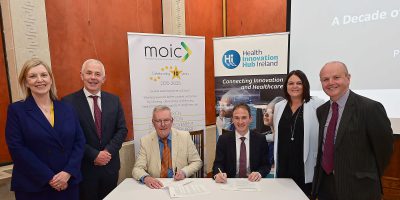
Ministers welcome cross-border collaboration on innovation in healthcare and medicines optimisation
Health Minister Mike Nesbitt was joined by the Irish Minister of State at the Department of Enterprise, Trade and Employment with special responsibility for Employment, Small Businesses and Retail,...

